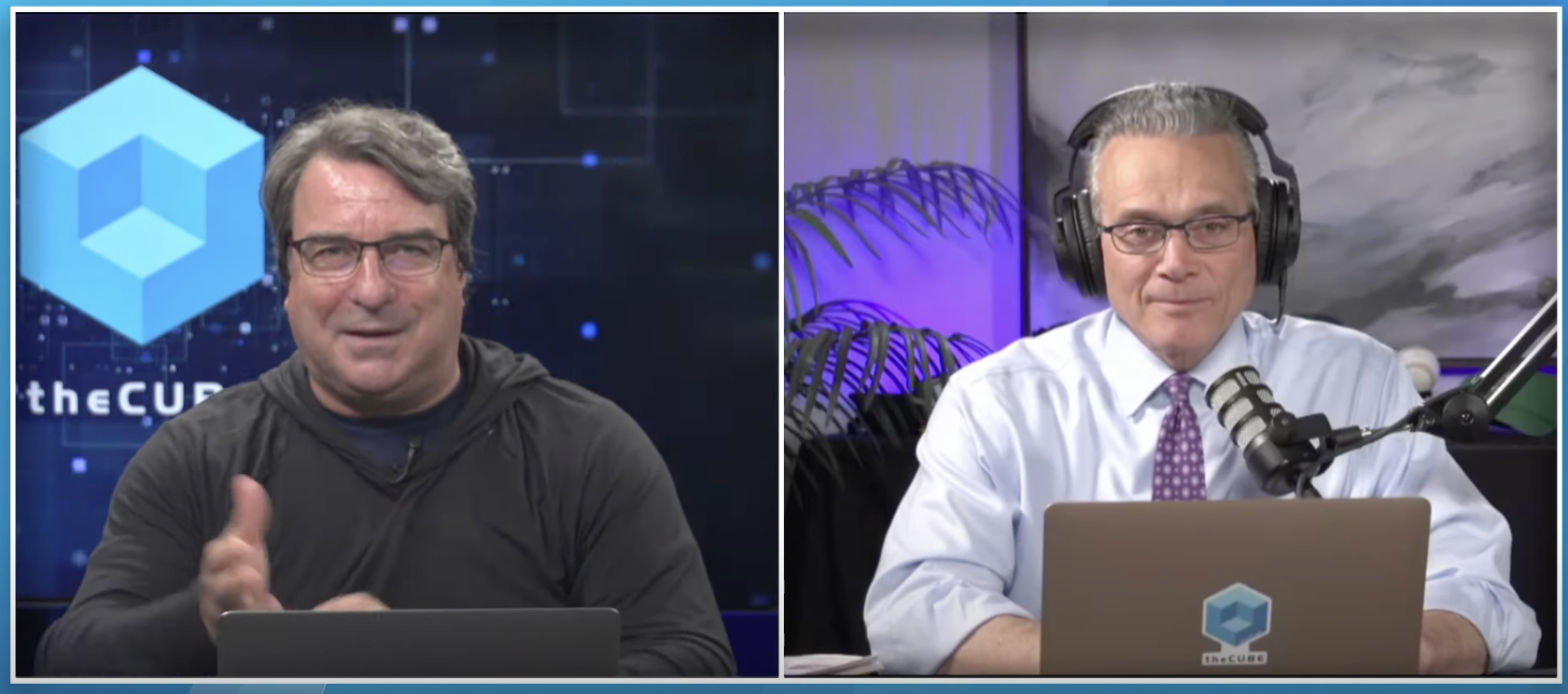 AI
AI
 AI
AI
 AI
AI
This week, the big story that emerged was OpenAI LP Chief Executive Officer Sam Altman’s hearing on Tuesday before a Senate Judiciary subcommittee, during which he called for increased regulation in artificial intelligence.
“The U.S. government should consider facilitating multi-stakeholder processes, incorporating input from a broad range of experts and organizations that can develop and regularly update the appropriate safety standards,” Altman told senators.
Altman’s testimony was very compelling, according to theCUBE industry analyst John Furrier on the latest episode of theCUBE podcast, specifically when he admitted he had a fear of AI, but not due to fear of job loss.
“He’s fearful of a moment when something bad could happen with AI. That’s where it kicks in the old Terminator, Skynet, AI stuff,” Furrier said. “I do agree with that fully. I do think he’s onto something there. “I thought his presentation was strong. He came across great for the industry.”
Looking 50 or 100 years into the future, it’s not out of the realm of possibility that some of the scenarios people worry about come to fruition, according to theCUBE industry analyst Dave Vellante.
“If there are machines that are autodidactic, that can learn on their own and that are more intelligent than humans, you know, they become our overlords,” Vellante said. “I don’t know what the probability of that is, but it’s probably not impossible that it happens. People, I think, are rightfully concerned about that. Like you always say, everything in the movies becomes true, except teleporting.”
Regarding regulation, many point to people such as Mark Zuckerberg, who have tech monopolies, when calling for more oversight. There are serious doubts that Congress would be equipped to handle such a task, according to Furrier.
“They say, ‘We should be regulated.’ By who? Congress?” he said. “These people asking these questions? They couldn’t regulate their way out of a wet paper bag.”
Advancements in AI continued to roll out this week simultaneous to Altman’s hearing. OpenAI released a ChatGPT app for iOS with an Android version coming soon. But the space is still in its early days, prompting Vellante to recall a time when the internet and email were still coming into existence and chat rooms seemed like incredible feats of technology.
“But you look back at it, it really sucked,” he said. “I mean, I find that I’m blown away by ChatGPT and Bard and all the AI momentum. In many respects, it’s amazing. But in many respects, not that good.”
Since the recently concluded Google I/O conference and the latest updates to Google Bard, Vellante has been doing a sort of A/B test, having one browser open for Bard and one for ChatGPT. The two are very different, according to Vellante.
“Sometimes Bard is better, sometimes ChatGPT is better. I found, in some cases, Bard was better a month ago than it is now,” he stated.
Ten years from now, everyone will likely be looking at ChatGPT much the way they did those initial chat rooms, Vellante said.
“We’re going to go, ‘Hey, John, you remember when we first started using ChatGPT? Wow, it was kind of a joke,’” he said. “We’re going to take it for granted. I just think it’s going to explode. But I think we’re going to look back and say, ‘Wow, it really wasn’t that good.’”
When talking about the early days of the web, the early days were crude and elementary, not looking good enough for the mainstream players that service the market, according to Furrier.
“Dial-up was slow, AOL Inc. chat rooms were lame, the graphics sucked. But people who saw through that were like, this is totally game-changing,” he said.
That brought to mind Digital Equipment Corp. co-founder Kenneth Harry Olsen having been widely quoted as saying that there was “no reason for any individual to have a computer in their home.” Olsen would later insist that quote was taken out of context.
“Personal computers started to pop up everywhere. We shared an office with somebody, we shared a PC, and then we got our own PCs. And then everybody had a PC, and then we networked a PC,” Vellante said. “You could just see the whole thing exploding. And the people who didn’t poo-poo it, such as the Michael Dells of the world, became billionaires.”
Of course, Olsen was extremely successful, Vellante added.
“But as John Chambers says, there’s no entitlement. And there, they were all out of business,” Vellante said.
Sam Altman, CEO of OpenAI
Elon Musk, CEO of Tesla Motors
Ken Olson, co-founder of Digital Equipment Corporation
Michael Dell, chairman and CEO of Dell
John Chambers, CEO of JC2 Ventures
Andy Jassy, CEO of Amazon
Steve Jobs, co-founder and former CEO and chairman of Apple Inc.
Jason Calacanis, internet entrepreneur
Adam Selipsky, CEO of AWS
Don’t miss out on the latest episodes of “theCUBE Podcast”! Join us by subscribing to our RSS feed. You can also listen to us on Apple Podcasts or on Spotify. And for those who prefer to watch, check out our YouTube playlist. Don’t wait any longer — tune in now and be part of the conversation!
THANK YOU